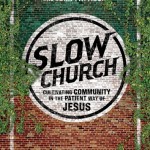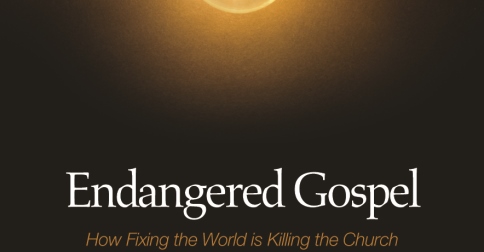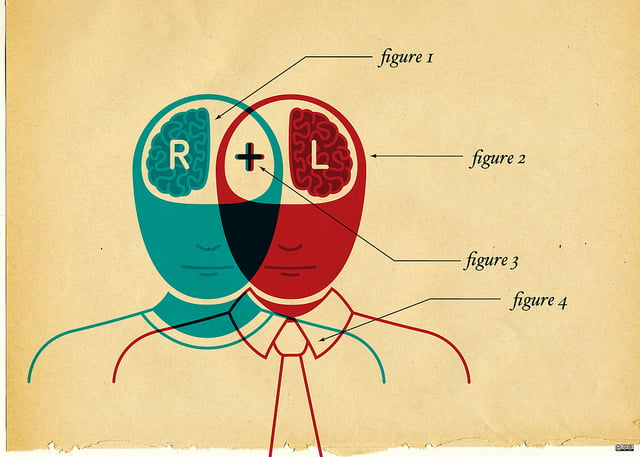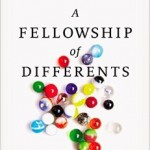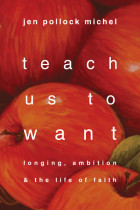 [ This post is part of the Patheos Book Club discussion of Teach Us to Want ]
[ This post is part of the Patheos Book Club discussion of Teach Us to Want ]
Teach Us to Want: Longing, Ambition, and the Life of Faith
Jen Pollock Michel
IVP Books, 2014
In her debut book, Jen Pollock Michel offers us an exquisite meditation on what it means to be human, to walk the tightrope between dismissing our desires as evil and wholly abandoning ourselves to them. Teach us to Want is a compelling mix of personal narrative and biblical reflection that ever-so-gently nudges us into deeper contemplation of our desires, the God who created us to desire and the ends towards which our desires are driving us.
The book is structured around 10 basic theological categories in which the role of desire is explored: fear, courage, grace, good news, scripture, prayer, petition, confession, community and commitment. There is much to commend here, Michel is a gifted writer who deftly weaves her own experiences and struggles with thoughts from other writers, making a compelling, daresay I say desirable case for a healthy understanding of God’s gift of desire.
One of the most helpful chapters in the book, one that will resonate with readers who have also read Slow Church and one that I wish wasn’t buried toward the end of the book, was the one on community, “Be My Neighbor.” Michel starts with the problem of transience that dominates so much of our lives and relationships:
If we don’t like our neighborhood, we can move to a new one. If our church ceases to please us, we can shop for a better one. If our colleagues annoy us, we can always look for a job with a better company. If our adult children disappoint us (or we them), contact can be severed. The transience of human society today allows everyone to maintain only the relationships they choose. Every human connection is a fragile thread and can be snipped at will (170).
Instead, Michel encourages us to take the long view – thinking geologically – and to understand our identity as part of the community of God’s people. Community – neighborhood, family, but most importantly the local church community – is where we learn habits that form us to desire the things that God desires. She writes:
[Holy] desire is cultivated in and for the local church. God means for us to belong to human community. In order for desire to be protected from its journey east (i.e., the selfish desires of our hearts), we will need to humble ourselves and implicate ourselves in the ordinary, honest and usually messy endeavors of the local church, praying for the grace to survive the ways we fail it and the ways it fails us. And for the occasions of disappointment, even, grief, we will seize upon the privilege of praying as our Lord taught us to pray: “Forgive us our sins, as we forgive those who sin against us.” (186, parentheses added for clarification.)
Who hasn’t struggled with desire, with wanting to do things that we know are not in our best interests or those of others, or with NOT always wanting to follow in the way that Jesus showed us? This excellent book is for all of us, comforting us that desires are part of the normal human experience, and challenging us to explore our desires, their roots, and how we can submit them to the loving, ultimately fulfilling reign of God.

